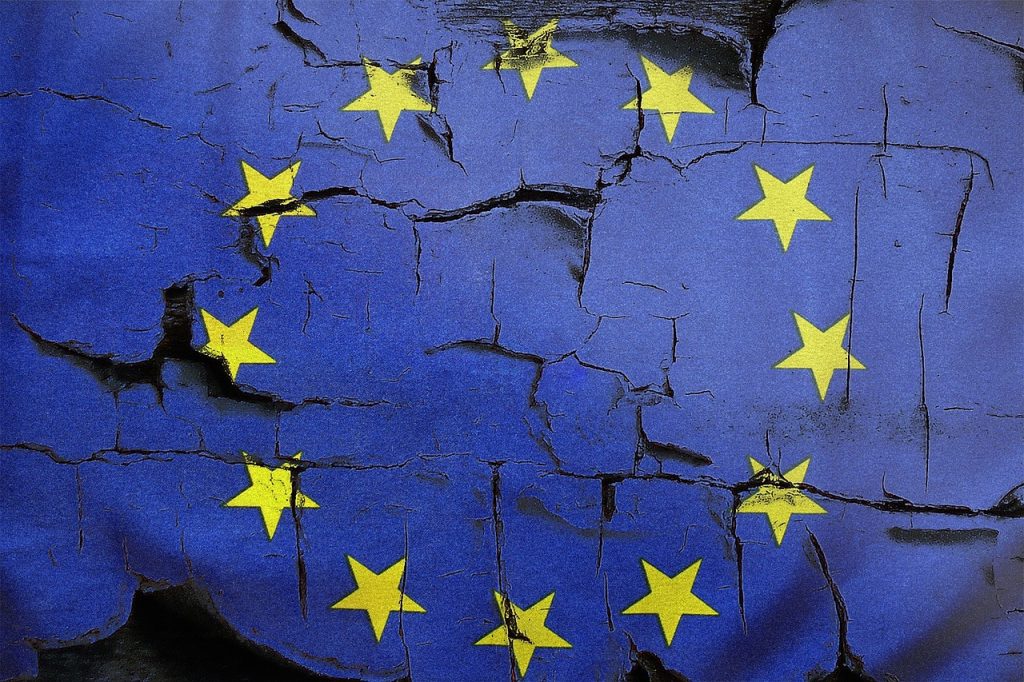
The apparent collapse of the Dutch coalition government – caused by Geert Wilders withdrawing his party’s support over the issue of migration and asylum seeking – is another indication that there are very dark clouds on the horizon for the European continent’s future and security.
Taken together with the results of the Polish presidential election, political developments and prospects in a growing number of member states of the EU and in Britain, this collapse is confirmation both of polarising populist politics and evaporating underlying consensus among voters. This is the case across all of the continent’s democracies – which represents a dangerous weakening in the face of threats from Putin’s Russia and naked hostility from Trump’s America.
It is obvious from the demands made by Russia at the Istanbul conference that Putin is seeking not just to redefine the Russian-Ukrainian border by force, but also to enforce a form of political capitulation and Moscow hegemony on what he hopes will be a defeated satellite Ukraine and its impotent European allies. Washington’s position has been cowardly, deceitful and evasive at best.
The evidence is growing that Trump’s foreign policy is nothing but shape-throwing and the growls of a paper tiger, which quieten into purring when confronted by adversity. Trump is increasingly concerned about the latest label applied to him by his critics: Taco. That is an acronym for “Trump always chickens out”.
His critics point out that belligerent threats made on the international stage – whether directed at Afghanistan’s Taliban, North Korea’s atomic missile programme or Iran’s nuclear programme – have all been followed by climbdowns. The feeble Houthis alone have felt US armed intervention, and then only from the lofty or distant safety of airborne cockpits.
In the course of the Shangri-La Asian summit in Singapore, Trump’s defence secretary Pete Hegseth claimed the Asia-Pacific region was now the main focus of US security concerns – signalling a demotion of the North Atlantic alliance as a buttress of American foreign policy.
Ominously, he stated that any Chinese invasion of Taiwan by the year 2027 would “result in devastating consequences” and reminded China that Trump had said that Taiwan would not be invaded “on his watch”. He said the US wanted to make the “costs” for China “too high” and to deter an invasion by executing peace through strength – “overt and covert”.
I say “ominously” because Hegseth’s words were deliberately ambiguous, and less clear in intent than Biden’s pledge to defend Taiwan. Devastating consequences were last threatened on North Korea in Trump’s first term – only to evaporate in pathetic theatrics at a Singapore summit where “nice” thoughts and words were exchanged with Kim Jong Un. Since then, North Korea has backed the Russian invasion of Ukraine – all the while developing its intercontinental ballistic missile programme and nuclear capability. A case, surely, of impunity met by Taco.
Trump’s cabinet members, however, seem to have been given licence to interfere in electoral debate in Europe. They have been openly supportive of the Alternative for Germany, George Simion in Romania, Nigel Farage in Britain and Karol Nawrocki in Poland. Nawrocki’s victory is not at all a disaster for the EU but it is a wake-up call for the EU’s federalist-leaning elite. In football language, they have lost the changing room.
As long as the member states continue to accord competence to the incompetent EU in asylum seeking and migration matters, the decline in European cohesion will continue and, most likely, accelerate. This reality is dawning on the member states – if not in Brussels.
There is a growing recognition that adherence to the outdated refugee conventions at the level of EU law and European Convention on Human Rights obligations in the face of international migration patterns is simply unsustainable politically, economically and socially. Like the Austrian chancellor and other member state leaders have done, publicly calling for change is the first priority for an EU struggling externally to face such hostility, overt and covert, from Moscow and Washington. Opposition is also coming internally from the union’s own electorates.
Even Keir Starmer sees the reality of uncontrolled migration from a British perspective.The matter is urgent. Schengen has been in a state of de facto part suspension. The EU is a treaty-based entity that is sustained by the principle of conferral; it is not a sovereign entity. The collective error of conferring policy competence on the EU in these areas is now clear to the member states; they can act together to repatriate legal and policy competence in these areas to the member states.
The heady days when Angela Merkel could demand open refugee access, not alone to Germany but to all member states on the basis of burden-sharing, are politically over. Peter Sutherland’s sobriquet of “heroine” bestowed by him on Merkel when he was UN special representative for international migration is a fading memory.
Fundamental change is not merely possible or probable; it is becoming an existential necessity.
